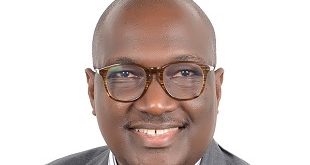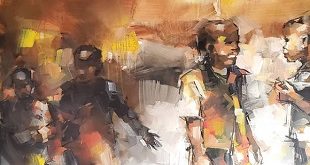
It will be recalled that when Fred Ruremera, a Mukiga migrant won the hotly contested LC-V chairmanship of Kibale district in 2002, the Banyoro protested and appealed to Museveni arguing that a migrant cannot rule them. President Museveni subsequently prevailed over Ruremera to step down for George Namyaka, a Munyoro. In fact during the meeting in Kibale where Museveni asked Ruremera to quit his seat, the president said the last thing the Banyoro could accept was re-colonisation by the Bakiga, having been ruled previously by the British and Baganda. Several analysts argue that this heightened the ethnic divide. It made the Banyoro think they have a God given right to lead the migrants. On the other hand it worked up the Bakiga ‘nationalism.’ In fact in the subsequent elections in 2006, they won nearly all the parliamentary seats in Kibale.
So rather than remove the seeds of ethnic friction, Musevenis action cemented the friction, sending one group into defensive solidarity and the other into a ‘superiority’ mentality.
‘We are not about to leave that place [Bunyoro]. This is Uganda, we are in Kibale legally. Bunyoro politicians should stop cheap politics of survival and embrace nationalistic politics. Let us concentrate on real problems like quality education, hospitals and good roads,’ said Barnabas Tinkasimire, a Mukiga and Buyaga MP. He also said that should the Banyoro choose to be confrontational, they will realise the futility and dire consequences of violence.
But Bunyoro is only a microcosm of the ethnic currents running in the country causing many to wonder whether Uganda can still be described as a nation-state ‘ or at least moving towards it.
How did we get here?
‘Instead of creating common-hood we are encouraging tribal cocoons which negate the true spirit of East African Community. The other principle of patriotism and nationalism has also been thrown to the winds,’ says Mwambutsya Ndebesa, a senior lecturer in the department of History at Makerere University.
Historically, from colonialism to the present, Uganda has been organised along ethnic and regional lines. Many observers have noted that the persistence of ethnicity in Ugandas socio-politics is because of the failure to dismantle and reform the colonial state. Instead, all the post-colonial leaders introduced militarism, stifled civil society, particularly political parties and enhanced an ethnically organised state. While these practices run through all the post-colonial regimes in Uganda, they seem to have been amplified by the National Resistance Movement (NRM) regime.
Morris Nsamba, a researcher at Makerere Universitys Refuge Law Project, says governance reforms introduced by NRM in 1986 that delinked voting rights from locality by pegging voting to residence was a good attempt at minimising ethnicity as a centre of political organisation.
‘But with the introduction of elective politics starting with the National Resistance Council (NRC) elections, the NRM was faced with a question of how to retain its power. Like the colonial state, it responded with divide-and-rule politics. A regime which had promised democracy, non-sectarian politics, and resolution of local tensions reverted to culture. It listed 56 indigenous communities in the 1995 Constitution,’ Nsamba writes in part in his paper ‘Breeding Fragmentation? Issues in the Policy and Practice of Decentralisation in Uganda’. The paper was to be presented at Makerere University on June 25.
Many other analysts have indeed argued that the 1995 Constitution is a turning point in Ugandas ethnic politics because rather than seek to downplay what divides us and build on what unites us, the delegates (with NRM the majority) sought to promote differences, fishing out from oblivion tribes that had more or less been integrated in the larger communities with whom they had lived peacefully all along and giving them constitutional identity.
For example from the Basamia-Bagwe in Busia emerged the Bahehe, from Buganda emerged Baruuli and Bakooki, etc.
The delegates shot down a proposal to adopt a national language (Kiswahili) which in Tanzania and to a lesser extent in Kenya has smoothed the ethnic divisions.
Now increasingly, Ugandas ethnic fissures have come to be defined by the number of districts, each representing a particular ethnic group or even dialect. Where there were 33 districts in 1980, there are now 94 districts!
‘We have always blamed the colonialists for having disintegrated our social cohesion and created districts along ethnic lines but President Museveni is making it even worse. The thinking of most Ugandans is now becoming narrower and narrower and it is really alarming,’ Nsamba said.
The governments explanation for creating the myriad ethnic districts has been that it wants to take services closer to the people and provide effective administration. While the constitution provides for this, the ethnic nature of the new districts has mostly ended up accentuating tribal identities without delivering any meaningful change in service delivery. In addition, it has ended up breeding and feeding local elite, helping them build a political network from the centre to the village and thus ensuring Musevenis firm hold onto power.
‘Our findings suggest that the success in the provision of services is questionable, although increase in the number of districts has undoubtedly helped the state to extend its presence and therefore its control,’ writes Nsamba, adding; ‘in this context, the district apparatus has formed the seedbed for political mobilisation and power capture.’
But most important, the NRM has not transcended the distinctly regional, ethnic and religious political foundations inherited from the post-colonial dispensation, and its own birth roots. The NRM has reproduced itself on the basis of these alliances.
The regional splits have deepened since the NRM came to power. Most of the top leadership of the NRM come from western Uganda. It is almost criminal to vote non-NRM candidates in western Uganda. Northern Uganda has been estranged. This explains why the north has consistently voted against the NRM in the last 18 years of electoral games in Uganda since 1989.
Although the NRM enacted a law against sectarianism, it has been indirectly confirming its belief in tribalism as a source of power consolidation. Thats why the president has been appointing people to key government positions just because a given tribe, region or religion has complained of marginalisation. The country has had people appointed prime ministers, vice presidents etc at the agitation of ‘their people’ under the pretext of regional/tribal balancing. This is an admission that ethnicity still counts in NRMs consideration of nation building. This cancer has since percolated to the grassroots and the local communities are now carrying forward the sectarian baton.
Kenya-style violence
In the aftermath of the disputed presidential elections in Kenya that took on violent ethnic dimensions, the question for many Ugandans was whether such violence could occur in Uganda.

Dr Juma Okuku, a senior lecturer in Makerere Universitys department of Political Science who has extensively researched on ethnicity in East Africa, says it could occur for a number of reasons.
‘First, for both countries, ethnicity has exercised profound influence on politics. Second, the conditions that produced ethnic violence in Kenya exist in abundance in Uganda. Third, so long as an ethnically organised state exists in Uganda, the struggle to access or capture it shall take an ethnic dimension. Fourth, the increasingly inequitable distribution of resources along ethnic lines can only create ethnic resentment. Fifth, the tendency by the incumbents, the ‘hunters, to monopolise power and are tempted to cause a situation where they become life presidents, can easily lead to violent ethnicity,’ he said.
While the ethnic bloodletting that occurred in Kenya and Rwanda are the extreme consequences of pursuing a national ethnic agenda, the latent consequences are as bad and with time eat away the countrys nationalism and undermine institutional development.
Ethnic districts
In terms of money alone, the multiplication of ethnic districts has increased the cost of public administration at the expense of service delivery.
In the 2005/6 budget following the creation of 22 new districts, government planned to spend about Shs 600m on civil servants per year in each district, Shs 60m a year on each of the 22 Woman MPs, Shs 78m per district to pay political leaders, including salaries for LC5 chairpersons, their deputies, speakers, mayors, LC5 executives and LC3 chairpersons, several millions of shillings on new RDCs and DISOs, between Shs 500m and Shs 1 billion to build each district headquarters, and Shs 15 million per year per district on allowances for council meetings.
Ethnic politics undermines national cohesion by ‘containerising people into ethnic districts where jobs and other resources are given to only those who are considered born in those areas while ‘foreigners are locked out.
Ndebesa says Uganda is in total political fog, ‘There is a total lack of social integration in society. This district-hood project that President Museveni has created is extremely dangerous. Every tribe and ethnic group has been given a district. This is total political gerrymandering to suit the political whims of Museveni. We are now a highly tribalised country that will explode any time,’ Ndebesa says.
The question for many Ugandans, though, is which way out of the current tribal maze?
‘Ugandans should mobilise and remove the system. This is the only solution for Uganda in my opinion,’ says Bidandi Ssali.
But that might be easier said than done. Besides, removing Museveni and NRM could easily end up as a ‘mere change of guard’ with the next regime only modifying its approach or doing it the same way.
‘We need to sit down and have consensus on how to achieve national integration anchored on common principles of tolerance, sharing and compromise so as to achieve national unity,’ says Ndebesa,
But ultimately, according to Okuku, the solution lies in dismantling the entire state as we know it today. ‘Ethnic violence is a result of failure to reform the ethnically organised state. What is needed is democratic reconstitution of the state and annihilation of its ethnic bases. Second, any meaningful resistance to election fraud or any form of injustice needs a well coordinated civil society. In case of political conflict, we must seek civil solutions and avoid military intervention as President Paul Kagame of Rwanda suggested during the Kenya crisis. Power sharing is a must in an ethnically organised state,’ he says.
Power-sharing, analysts say, goes beyond sharing cabinet posts. It involves ensuring equitable access to national institutions, jobs and collective public services such as education and health.
The way forward
Meanwhile, many insist, there is still the problem of creating districts that must be halted before homesteads are named districts. ‘The creation of districts should have clear quantitative and qualitative criteria detached from politics. The decision of which area qualifies to be granted district status should be left to the technocrats to determine population, acreage and the availability of important social amenities that warrant such a status. The relationship between the local leadership in the district and the central government should be re-negotiated,’ Nsamba explains. ‘The principle is that when the central government creates a district, it divides its powers. The local leadership is supposed to work for the people of that area and not for the central government. Service provision should be balanced nationally and in the event there are imbalances, the local leadership should have the power to challenge the central government. Presently, districts have very limited autonomy and cannot borrow on their own to generate income. This basically defeats that principle.’
Be that as it may, the onus to put this tribal vehicle behind lies with President Museveni, but ultimately Ugandans must decide pretty quickly whether they want to continue on the highway to Somalia, stop midway in Kenya or turn back from the brink.
 The Independent Uganda: You get the Truth we Pay the Price
The Independent Uganda: You get the Truth we Pay the Price



